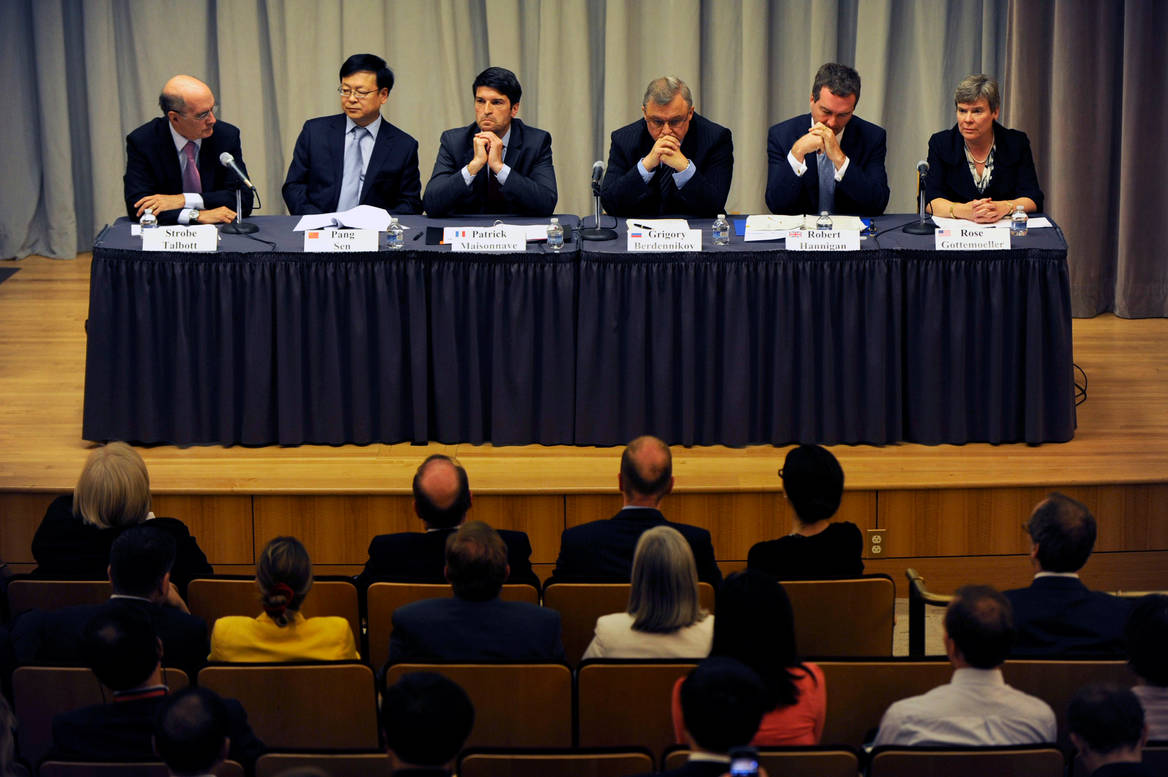Great Expectations: The P5 Process and the Non-Proliferation Treaty
If it can be properly harnessed, and the risks managed, the P5 Process could help build confidence between nuclear and non-nuclear weapon states
In 2009 the British Government established an unprecedented process of regular and sustained collaboration between the Permanent Five – also the nuclear weapon states – on nuclear disarmament and arms-control issues.
The ‘P5 process’, as it is known, has expanded its activities since its creation. It has voluntarily become the vehicle for nuclear-weapon states to work towards their disarmament commitments enshrined in the Non-Proliferation Treaty – pledges that their non-nuclear counterparts charge have gone largely unfulfilled. Because of this significance, all eyes are now on the P5 process. The loud and frequent demands that it demonstrate concrete outputs and significant progress by 2014 are difficult to ignore.
This paper draws upon extensive interviews with officials and experts to shed light on the largely opaque P5 process. It considers the risks in the P5’s current trajectory, as well as opportunities for the nuclear-weapon states to build upon their modest but important base of work after the 2015 NPT Review Conference.
About the Authors
Andrea Berger is RUSI’s research fellow in Nuclear Analysis and deputy director for the UK Project on Nuclear Issues.
Professor Malcolm Chalmers is research director and director of UK Defence Policy at RUSI.
WRITTEN BY
Malcolm Chalmers
Former Deputy Director General, RUSI
Andrea Berger
Guest Contributor



